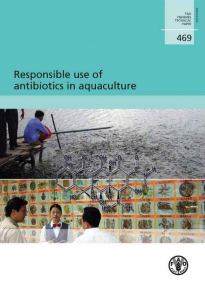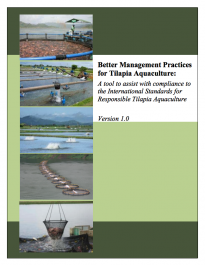Skills and Knowledge for Misuse of Veterinary Drugs
Having the skills and knowledge to be able to prevent and reduce food loss and waste (FLW) caused by misuse of veterinary medicines and other contaminants is important.
Among producers, the priority should be education programmes that emphasize proper drug use (e.g. which drugs are permitted and how to comply with HACCP protocols).
Good Practice
Good Practice
Skills and knowledge must also be based on good practice. For example, antibiotics are mixed into the fish feed and fed to the fish several times every day over, for example, 7 or 10 days. The concentration of antibiotics must be sufficient to kill the bacteria, and the prescribed concentration of medication and the length of the treatment must be carefully followed, even if the fish stop dying during the treatment. If treatment is stopped before the prescribed treatment period, there is a high risk that the infection will start all over again. Treatment with antibiotics in a recirculation system will have a small effect on the bacteria in the biofilter. However, the concentration of antibiotics in the water, compared to that inside the fish being treated with medicated feed, is relatively low, and the effect on bacteria in the biofilter will be much lower. In any case, one should carefully monitor the water quality parameters for any changes because they may indicate an effect on the biofilter. Adjustment of the feeding rate, use of more new water or changing the flow of water in the system may be necessary. Several antibiotics can be used, such as sulfadiazine, trimethoprim or oxolinic acid according to the prescription by the local veterinarian.
Chemicals usage by some farmers is unnecessary and can cause more problems than intended to solve. Pesticides are banned for use in aquaculture. In many countries there are few therapeutants approved for application for fish to be consumed by humans. Some farmers choose to apply antibiotics in a preventative manner such that disease resistant bacteria can be fostered. Chemicals are to be used sparingly or eliminated completely from production. Most tilapia grow-out farming requires no chemical applications.
Key Publications
Responsible use of antibiotics in aquaculture This work focuses on antibiotics misuse and the concomitant threat of resistance development, considering this topic to be a public health concern that affects the population worldwide. | |
A Guide to Recirculation Aquaculture This guide focuses on the techniques for the conversion from traditional farming methods to recirculated aquaculture and advises the farmer on the pitfalls to be avoided along the way. | |
Better Management Practices for Tilapia Aquaculture This document seeks to provide better management practices to producers to aid in efforts to seek compliance to the International Standards for Responsible Tilapia Aquaculture. |
More Resources
More Resources
31 October 2023














